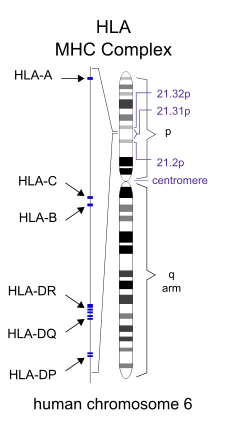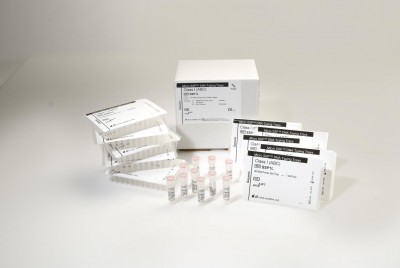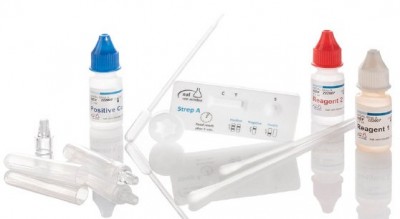BALT MED company specializes in products in three directions: HLA-typing and rapid tests for drugs and infectious diseases.
The human leukocyte antigen (HLA) system or complex is a gene complex encoding the major histocompatibility complex (MHC) proteins in humans. These cell-surface proteins are responsible for the regulation of the immune system in humans. The HLA gene complex resides on a 3 Mbp stretch within chromosome 6p21. HLA genes are highly polymorphic, which means that they have many different alleles, allowing them to fine-tune the adaptive immune system. The proteins encoded by certain genes are also known as antigens, as a result of their historic discovery as factors in organ transplants. Different classes have different functions:
HLAs corresponding to MHC class I (A, B, and C) present peptides from inside the cell. For example, if the cell is infected by a virus, the HLA system brings fragments of the virus to the surface of the cell so that the cell can be destroyed by the immune system. These peptides are produced from digested proteins that are broken down in the proteasomes. In general, these particular peptides are small polymers, about 9 amino acids in length. Foreign antigens presented by MHC class I attract killer T-cells (also called CD8 positive- or cytotoxic T-cells) that destroy cells. MHC class I proteins associate with β2-microglobulin, which unlike the HLA proteins is encoded by a gene on chromosome 15.
HLAs corresponding to MHC class II (DP, DM, DOA, DOB, DQ, and DR) present antigens from outside of the cell to T-lymphocytes. These particular antigens stimulate the multiplication of T-helper cells (also called CD4 positive T cells), which in turn stimulate antibody-producing B-cells to produce antibodies to that specific antigen. Self-antigens are suppressed by regulatory T cells.
HLAs corresponding to MHC class III encode components of the complement system.
HLAs have other roles. They are important in disease defense. They are the major cause of organ transplant rejections. They may protect against or fail to protect (if down-regulated by an infection) against cancers.Mutations in HLA may be linked to autoimmune disease (examples: type I diabetes, coeliac disease). HLA may also be related to people's perception of the odor of other people, and may be involved in mate selection, as at least one study found a lower-than-expected rate of HLA similarity between spouses in an isolated community.
Aside from the genes encoding the 6 major antigen-presenting proteins, there are a large number of other genes, many involved in immune function, located on the HLA complex. Diversity of HLAs in the human population is one aspect of disease defense, and, as a result, the chance of two unrelated individuals with identical HLA molecules on all loci is extremely low. HLA genes have historically been identified as a result of the ability to successfully transplant organs between HLA-similar individuals.


A rapid diagnostic test (RDT) is a medical diagnostic test that is quick and easy to perform. RDTs are suitable for preliminary or emergency medical screening and for use in medical facilities with limited resources. They also allow point-of-care testing in primary care for things that formerly only a laboratory test could measure. They provide same-day results within two hours, typically in approximately 20 minutes.

